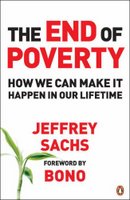Together we are making a difference
 My lounge was full as South African and UK friends gathered for the long awaited first Test between the Springboks and the British Lions. I was somewhat nervous of the outcome.
My lounge was full as South African and UK friends gathered for the long awaited first Test between the Springboks and the British Lions. I was somewhat nervous of the outcome.When the Springboks once beat England 36-0, a son of the Western Cape was so excited that he managed in one leap from his seat to smash some of my room lights on his way up into the air and break a seat when he landed.
Well this time, with my sofa now replaced with a sturdier version, I am glad to report that my Afrikaner son-in-law Drikus, did not make such an impression on my furniture as he and his fellow countryman celebrated his team’s memorable win…
I also appreciated that all the South Africans in the room at least tried to be humble in their moment of victory, even if they didn’t quite manage it.
Not long afterwards I was with my sons Wes and James of English and Welsh descent and we were in reflective mood. Actually we found it hard to talk. To be honest as we looked at the pictures of what had taken place in South Africa that weekend, we were near to tears.
For what we were focussed on were not images of rugby players in the green and yellow of the Springboks or the red of the Lions but of hundreds of children dressed in blue hoodies.
I cannot fully imagine what it must have been like to be there when the Kinder Kerk team of Kings Church International gave out these special gifts to each of the children. But the beaming smiles in the pictures said it all.
Not only do the children now have warm clothes for winter but they also clearly love to wear outfits that say that each of them is highly valued. Blue hoodies are now being spotted all over Robertson.
What particularly struck us looking at the pictures is that so many people are now being blessed because of team work both locally and internationally.
Both King’s Church International in Robertson and in Windsor gave generous offerings to make all this possible.
Both groups are working as one to develop not only the Kinder Kerk ministry but a multi-racial church that reaches out to increasing numbers of people.
Such teamwork for sure can make a dream work. Or to adapt a Biblical phrase ‘how good and pleasant it is when brothers (and sisters and black, brown and white and south African and English) live (and work) together in unity…for there the Lord bestows his blessing, even life for evermore, Psalm 133:1,3.’
The more we see the importance of team and the more we all learn to be team players, then the more we can accomplish.
This is true in every aspect of life. Success will come in marriage when each partner stops focussing on their own individual needs and agendas and starts to selflessly serve and bless the other. To stop talking of ‘me’ and concentrate on ‘we’ is the way to be a fulfilled husband or wife.
A home will be blessed when every one works to discover and develop each others’ strengths and cover each others’ weaknesses. I was brought up to believe that a happy home is where ‘we each live for one another and all live for God.’
A church will be blessed and will become a greater blessing when Christians turn away from being independent and critical and become inter-dependent and constructive in their attitude and behaviour towards others.
Jesus was a great believer in team. That’s why he called and trained a team of 12 and told them in turn to go out and train the whole world to live as His disciples.
No-one can serve and change the world by themselves. But together as teams, especially in teams of 12s, we can bring salvation and transformation to individuals and nations across the world.
It’s great to be part of the same team with you.
Labels: lions, rugby, South africa











